I was intrigued from the moment I saw the trailer for Kedi (Turkish for cat), a documentary by Ceyda Torun. Having recently published Shop Cats of New York, a book about cats living in a variety of New York City businesses, I was interested in learning about the lives of and attitude towards felines in another major city – albeit over 5,000 miles and a different culture away.
The film’s trailer is entertaining and beautifully shot (as is the entire documentary), introducing us to the felines featured in the film, each with a very distinct personality. The stories of these cats – with their nicknames and adorable antics are not in and of themselves what make Kedi the thoughtful and inspired documentary it is. These cats and their persona are the hook by which we are pulled into what I found to be a beautiful and complex look at the lives of street cats, the humans they interact with and the city in which they reside.
To categorize Kedi as a cat documentary sells it short (not that there’s anything wrong with cat documentaries mind you so no hate mail please!). However, this is a documentary that, like any good book or film, works on several levels.
What becomes immediately clear is the difference in attitudes towards street cats in Istanbul to that in the United States. In the New York Times review of Kedi, the writer draws a comparison between how cats are viewed in Istanbul to how we related to them in this country when they first became “domesticated” to protect our granaries. “They were cared for by humans, but not coddled, maintaining a certain measure of independence. The street cats of Istanbul, who would probably be considered an animal-control problem in the United States, are, in a sense, throwbacks to those ancients.”
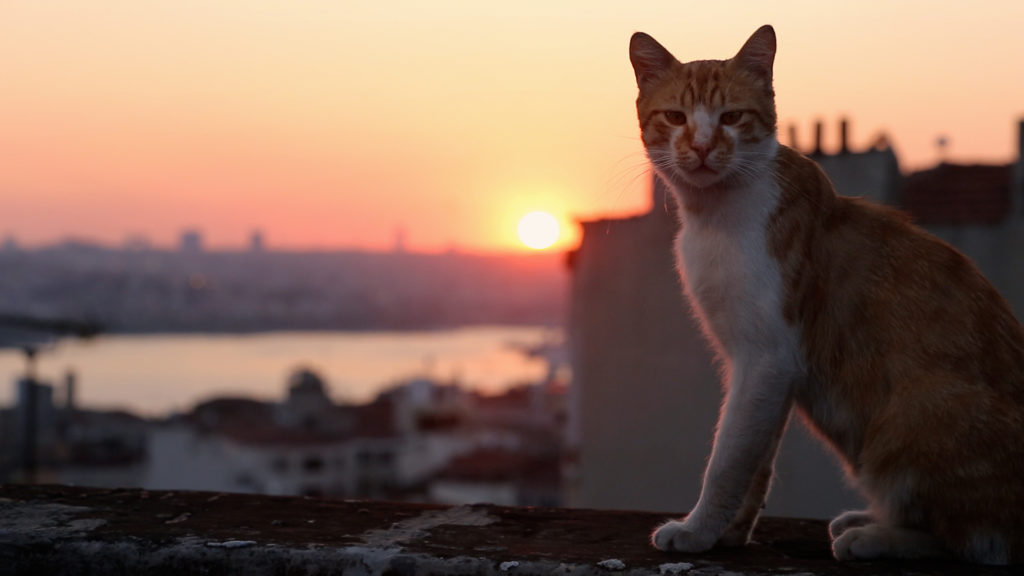 While this statement accurately reflect how we generally view street cats in this country (also referred to as “feral” or “community cats), it falls short in capturing what I found to be a deep and profound connection the humans in Kedi have with the cats with whom they share their lives.
While this statement accurately reflect how we generally view street cats in this country (also referred to as “feral” or “community cats), it falls short in capturing what I found to be a deep and profound connection the humans in Kedi have with the cats with whom they share their lives.
The synopsis of the movie as written in the press materials sums up this complex relationship succinctly: “Claiming no owners these animals live between two worlds, neither wild nor tame – and they bring purpose to those people they chose to adopt. In Istanbul, cats are the mirrors to the people allowing them to reflect on their lives in ways nothing else could.”
The humans in Kedi derive deep meaning from the cats with which they interact in a variety of ways. And they see human life (and in some instances fate) as being tied closely to that of their feline friends. The dialogue is so rich I found myself literally transcribing the entire documentary, I had to hold myself back from publishing it in its entirety and did my best to show restraint in the excerpts I quote below.
Caring for the cats is therapeutic for some.
“I was really caught up, l was really lost. This truly is therapy. I’m really happy. Honestly. Thanks to them. Before I couldn’t talk or laugh. Let’s just say they make you fall in love again.”
“My therapist says I have to heal my wounds by caring for them, by feeding them and tending to their needs.”
Cats are seen as being closely connected to God. Either as an embodiment, or that by caring for them one is doing God’s work.
“God brings us closer to him in different ways. For me it was these animals. I guess I was worthy of his love”
“Dogs think people are God, but cats don’t. Cats know that people act as middlemen to God’s will. They’re not ungrateful. They just know better.”
They teach them how to live and how to love.
“A cat meowing at your feet, looking up at you. Is life smiling at you? Those are moments where we’re lucky. They remind us that we’re alive.”
“Life is beautiful if you know how to love. You love if your heart’s eye is open….If you can enjoy the presence of a cat, a bird, a flower, what can I say….the world will be yours….”
“The love of animals is a different kind of love. People who don’t love animals can’t love people either. I know that much.”
Several of the women commented on their admiration for the character cats have. Their strong will and unapologetic attitudes and their ability to be feminine and strong.
“She does what she wants, that’s important to me. That she never compromises her freedom.”
“Their posture seems feminine to me. I don’t see that elegance in women anymore… In a city like this It’s very difficult to be a woman, to be female, to express your femininity. To be defiant with your femininity.”
The lives of the street animals and human residents of Istanbul are seen as inextricably linked.
“Our concerns for street animals and our concerns for people are completely related to ne another. If you ask me, the troubles street cats or other street animals face are not independent from the troubles we all face… Maybe we’ll solve our own problems as we try to solve theirs. In fact I’m sure that we would even regain our fading sense of humor and rekindle our slowly dying joy for life. “
The love and admiration for these comes at times from the most unexpected places. A large burly fisherman with a weathered face syringe feeds abandoned kittens. A gentle man with large hands carries an injured kitten to a vet. A slight, gentle looking man who suffered a nervous breakdown and attributes his recovery to caring for the cats walks the streets laden with plastic bags full of raw meat each day. A fishmonger gently tosses small fish to kittens, ensuring each receives one.
I can only hope I’ve done this documentary justice in my write-up. And trust me when I say I haven’t even covered every aspect of the film (Yes they anthropomorphize cats in Istanbul just a we do here, with some very colorful projection you’re sure to get a kick out of!).
Kedi is a visual triumph. The filmmakers adeptly filmed and edited footage from multiple perspectives (including that of the cats). You will walk away feeling like you truly know the cats, the humans, and various aspects of life in Istanbul. And the dialogue is amazing – almost as scripted (I was not joking about having transcribed the film!). They’ve done a tremendous job weaving together many themes and rich content in a seamless manner – not an easy task!
Not only would I recommend you go see Kedi if it’s screening near you, I encourage you to purchase a copy. I’ve seen it twice and would happily see it again.

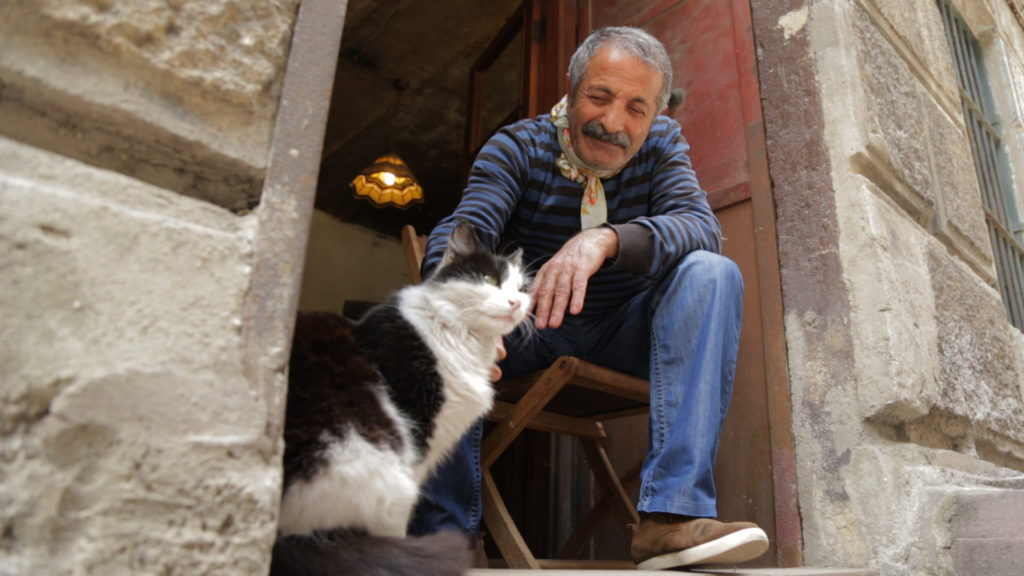
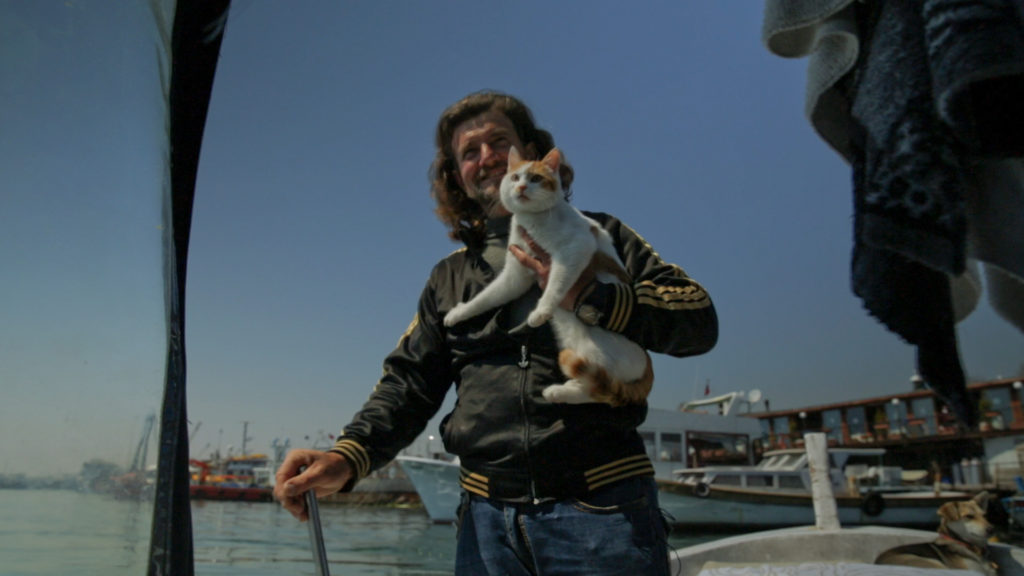
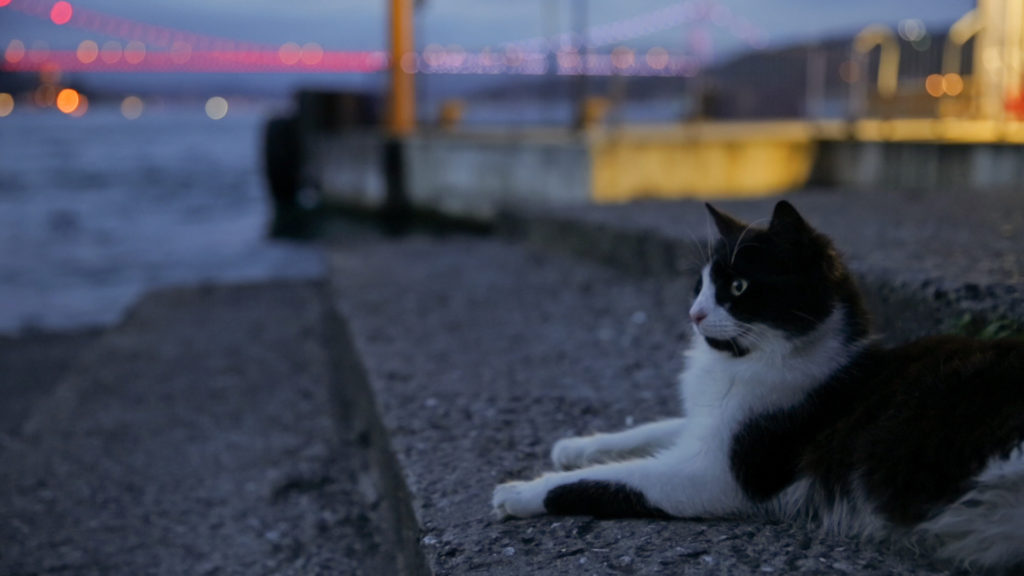
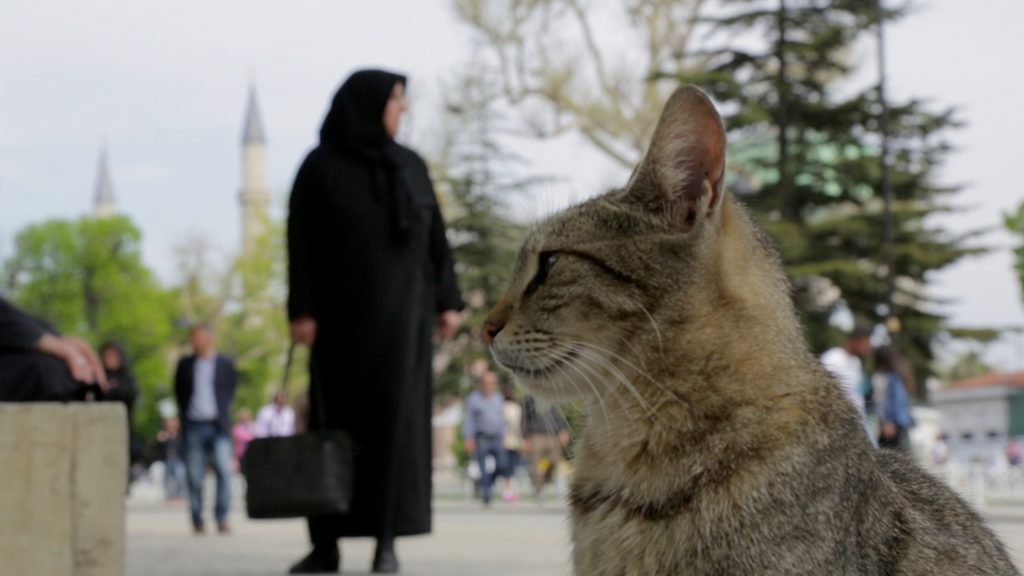
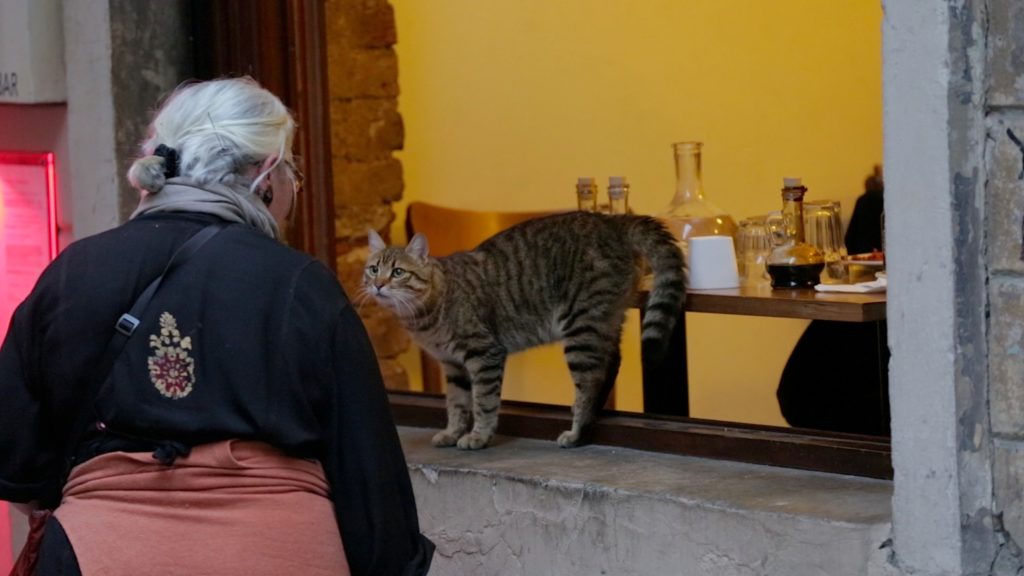
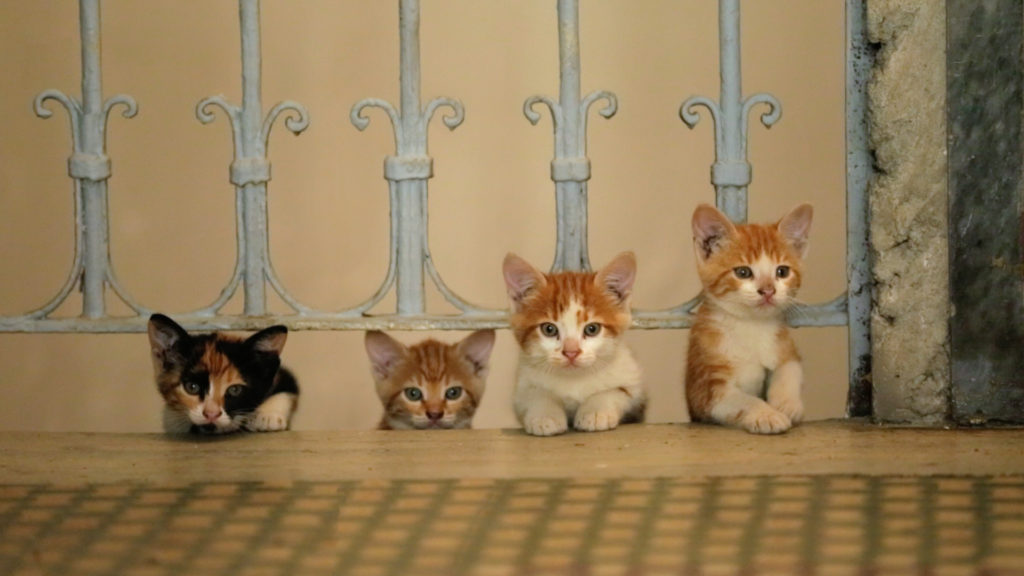
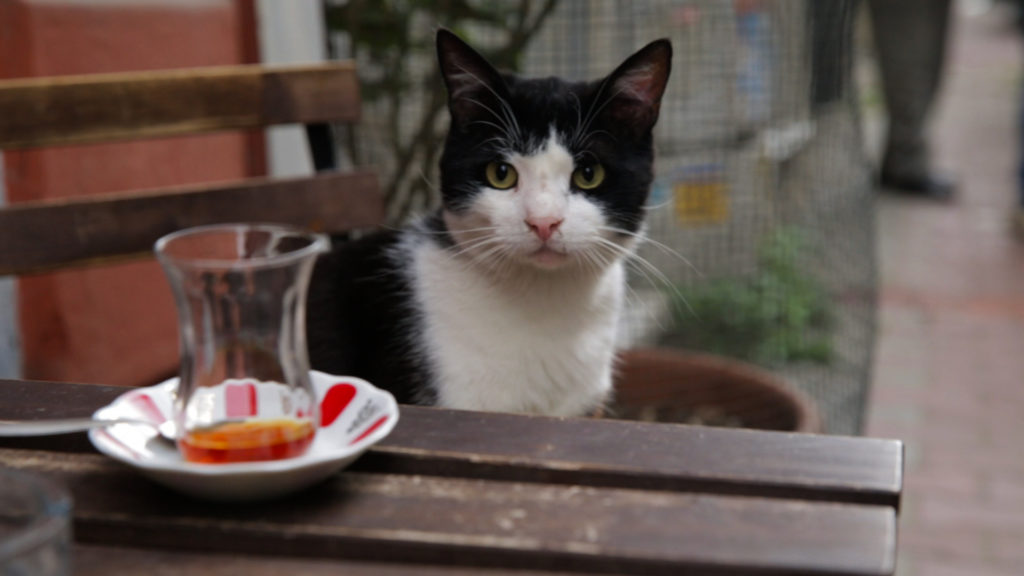
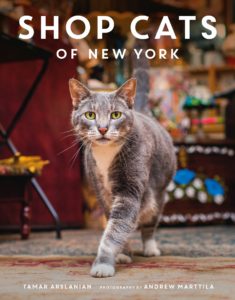
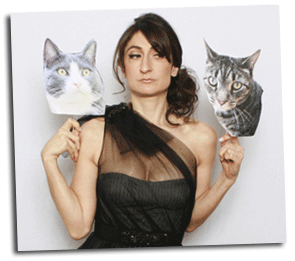



Pingback: Kedi: Much More Than a Film About Cats in Istanbul - Cats n Things